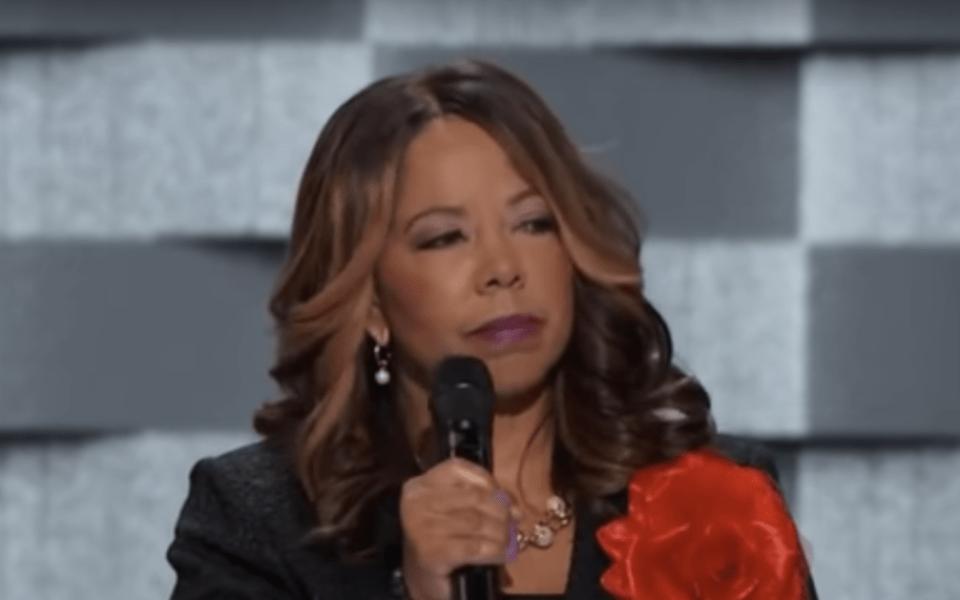During the Democratic National Convention, Lucia McBath memorably stood beside the mothers of Sandra Bland, Trayvon Martin, Eric Garner and Dontre Hamilton, and declared, “When your child dies, you don’t stop being a parent.”
McBath recalled how her 17-year old son, Jordan Davis, was shot and killed by a white man in an encounter in a gas-station parking lot in Jacksonville, Fla. on Nov. 23, 2012 “for playing loud music.” Her son’s life ended that day, McBath said, adding, “But my job as his mother didn’t. I still wake up every day thinking about how to parent him, how to protect him and his legacy, how to ensure that his death doesn’t overshadow his life.”
Unlike the killer of Trayvon Martin, David Dunn, the man who killed Davis, was found guilty of murder. While justice was served in the death of Jordan Davis, the episode helped crystalize a public reckoning in white America’s ongoing education on race relations — that vicious and persistent stereotypes about black men and boys as being dangerous and out of control devalue and undermine their lives at every turn, often with fatal consequences.
“I lived in fear that my son would die like this,” McBath said at the convention. “I even warned him that because he was a young black man, he would meet people who didn’t value his life. That is a conversation that no parent should ever have with their child. Hillary Clinton isn’t afraid to say that black lives matter. She isn’t afraid to sit at a table with grieving mothers and bear the full force of our anguish. She doesn’t build walls around her heart. Not only did she listen to our problems, she invited us to become part of the solution.”
That same maternal sensibility — a striking blend of private grief and public responsibility — came across when I spoke with McBath over the past weekend, while she was in North Carolina campaigning for Clinton alongside her fellow “mothers of the movement.”
An early supporter, McBath is well aware of the criticism of Clinton for her past role in abetting mass incarceration and the demonization of young black people as the drug war gained ferocity in the 1990s. While noting the “night and day” contrast between Clinton and Trump, McBath suggested that Clinton has undergone a conversion and also that her ’90s-era posture was an aberration in a life otherwise committed to racial justice.
“As to that comment about ‘super-predators,’ she has said over and over again that this is not the proper rhetoric,” McBath told me. “The individuals causing those kinds of crimes were people who were hopeless based on the intrinsic problems within their community; that is why they became so predatory is because of systematic racism and poverty. Her intent was not to say that all black males are super-predators.”
While Clinton’s 1996 comment about “super-predators” played into a dangerous stereotype going back to the convict-leasing era of black men as dangerous animals who need to be controlled, the 1994 Violent Crime Control and Law Enforcement Act signed into law by her husband escalated mass incarceration.
“She has said openly that when the crime bill was instituted, it was not meant to be instituted against an entire race of people in an urban area,” McBath told me. “She knows that there is work to do to be able to change some of the issues of implicit bias, mass incarceration and illegal policing. To be mindful that she was First Lady and people want to blame her for that, she is standing by the fact that there have been some very devastating implications. She’s put a very comprehensive proposal forward to build better relations between law enforcement and the communities they serve.”
Indeed, Clinton has declared more than once on the campaign trail that “it’s time to end the era of mass incarceration.” While acknowledging that she doesn’t have all the answers, Clinton said during a speech at Columbia University in February: “I know we should work together to pursue alternative punishments for low-level offenders. They do have to in some way be registered in the criminal justice system, but we don’t want that to be a fast track to long-term criminal activity. We don’t want to create another incarceration generation.”
As numerous activists and scholars note in the new Netflix documentary 13th, mass incarceration is falling out of favor among both Democrats and Republicans, with politicians focusing on alternatives like community supervision and an expanded parole and probation. As the era of mass incarceration comes to an end, they worry that America’s racial caste system is only adapting to a new paradigm of maintaining control over black bodies through ankle bracelets and electronic monitoring.
As the United States undergoes a political convulsion in this unpredictable election, it feels like something big is on the horizon for criminal justice reform. Whether it’s real opening for democracy or a new machine settling into place remains entirely unclear.
Join the First Amendment Society, a membership that goes directly to funding TCB‘s newsroom.
We believe that reporting can save the world.
The TCB First Amendment Society recognizes the vital role of a free, unfettered press with a bundling of local experiences designed to build community, and unique engagements with our newsroom that will help you understand, and shape, local journalism’s critical role in uplifting the people in our cities.
All revenue goes directly into the newsroom as reporters’ salaries and freelance commissions.


Leave a Reply